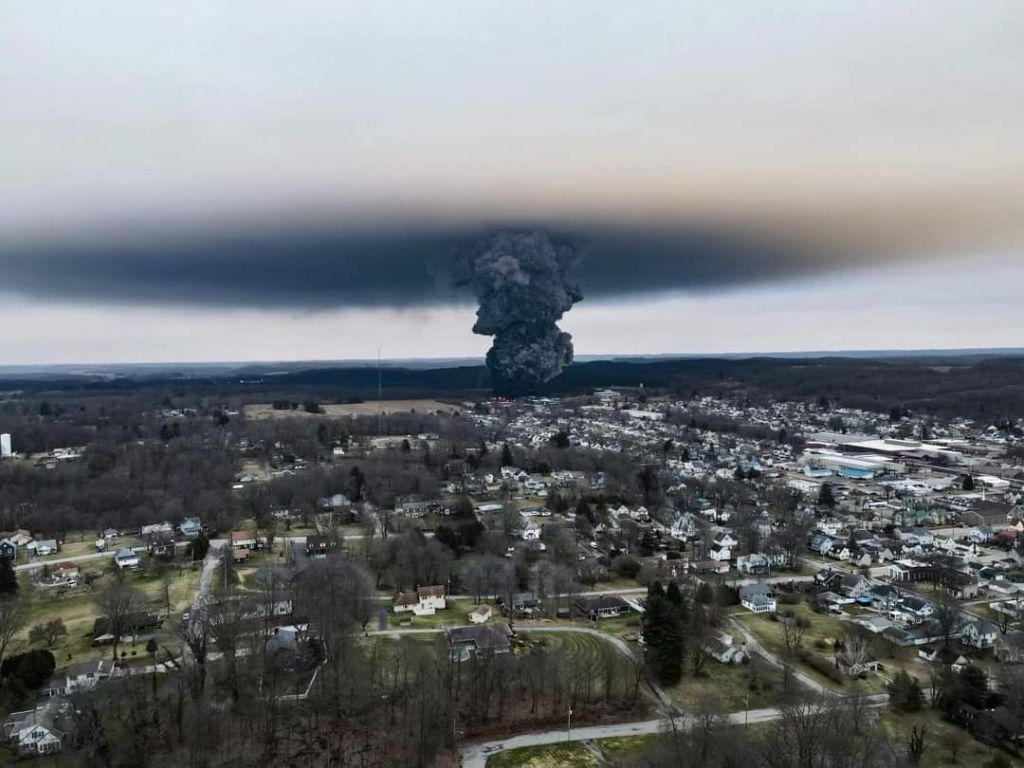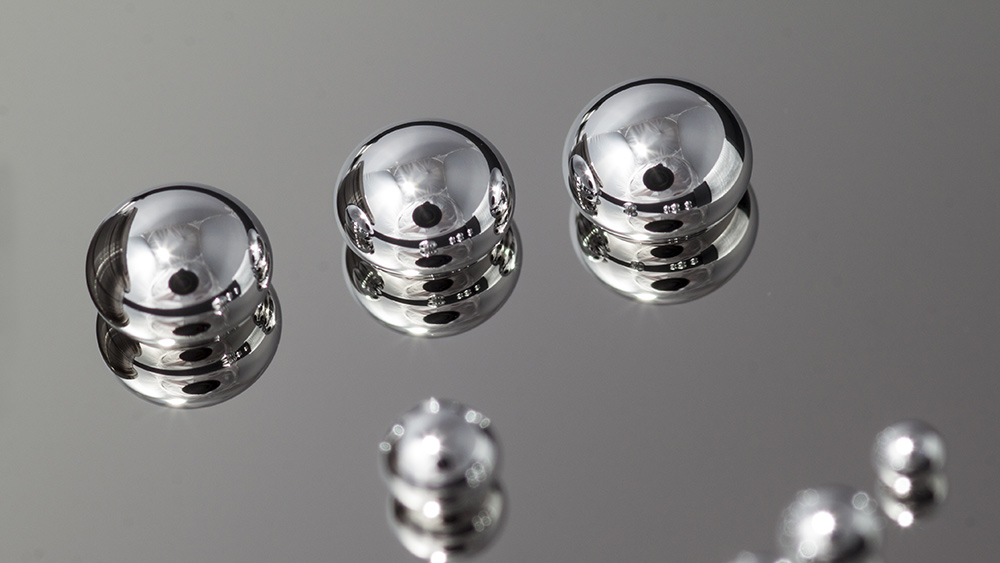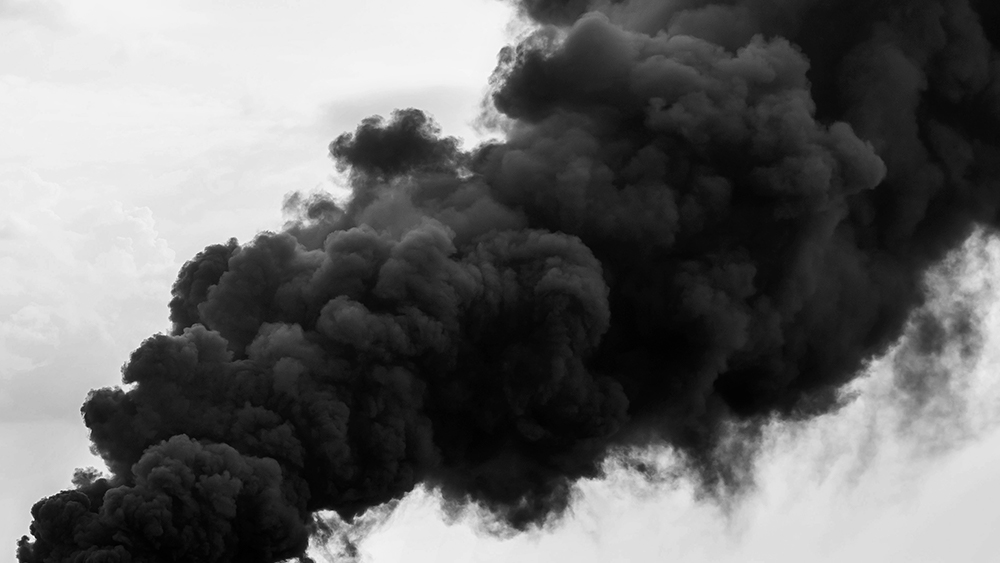
During the Wuhan coronavirus (COVID-19) pandemic, homeowners learned the importance of keeping their houses clean to prevent the spread of infections.
But according to a study, exposure to commercial household cleaning products is just as bad for your health as car exhaust.
Cleaning products are often marketed with the promise of making your home clean and germ-free without harming your family or pets. However, this isn't always the case, especially when you use commercial household cleaning products.
Aside from homes, people in workplaces and schools are frequently exposed to cleaning products that actually do more harm than good.
Commercial disinfectants and indoor air quality
Results from the study show that using commercial disinfectants can decrease indoor air quality and, ironically, increase pollutants in both gas and aerosol form.
If you've ever stepped into the office after the cleaners have finished their job, you will notice the telltale smell of harsh chemicals. These strong disinfectants often have sharp smells that are intense and, in many cases, sickening.
Cleaning chemicals contain various synthetic scents meant to cover up the cancer-causing chemicals within those products.
Study suggests household cleaning aerosols may emit more harmful VOCs than cars
For the study, researchers meticulously replicated the indoor conditions of cleaners while taking measurements in real-time.
The scientists found that commercial cleaning agents were detected in the air only minutes after they were applied to a surface. The same was also observed in well-ventilated areas that duplicated a large office building.
The researchers measured different pollutants such as aerosols, oxidants and radicals. According to the results, chemical concentrations were more than double the normal outdoor amounts in some cases, especially without the same room to disperse.
This is alarming because all those harmful chemicals were sucked into human lungs. Chemicals from household cleaning products were deposited "at rates comparable to or worse than that of aerosols inhaled from cars."
What does this mean for people who frequently use harsh cleaning products?
People of all ages are at risk of experiencing negative side effects from exposure to these products, especially people working with them routinely, like cleaning staff in offices and other commercial buildings. They often spend all day, day in and day out, using different cleaning products with a lot of chemicals to disinfect common touchpoints throughout the office.
They may also spend more time sanitizing bathrooms and dining areas.
You may experience similar levels of exposure if you frequently clean your home to avoid COVID-19 infections, particularly if you have gone back to the office and have at-risk family members at home. (Related: Cleaning products linked to antibiotic resistance: Use plant-based non-toxic cleaners instead, urge experts.)
How to avoid these toxic chemicals at home
The study doesn't mean to discourage people from cleaning. After all, hygiene and sanitation are important for your overall well-being.
Rather, the study highlights the importance of a clean home or workspace for your health. This just means that when buying cleaning products, always check product labels.
Choose safer alternatives when purchasing cleaning products to be used in your home. You can also use these non-toxic alternatives:
Glass cleaners
Most commercial glass and surface cleaners contain a solvent called butyl cellosolve, a hazardous substance that is a carcinogen and is not safe for humans in any amount. Some products contain fragrances that are harmful to marine life.
Instead of glass cleaner, use vinegar, an acetic acid solution derived from diluted alcohol. The acetic acid gives vinegar its taste and smell, and it's also what makes vinegar a great all-natural cleaning product and germ-killer.
However, you shouldn't use vinegar on ceramics, pearls, stone, computers or phones. Don't mix vinegar with bleach because the combination creates a toxic, chlorine gas.
Surface cleaners
Some surface cleaners contain the fragrance chemical galaxolide, which often contaminates waterways. Galaxolide is also an endocrine disruptor.
According to a 2015 study, long-term exposure to galaxolide can cause cellular, tissue and genetic damage to zebra mussels.
In 2018, SC Johnson set a three-year window to phase galaxolide out of its products. Meanwhile, many cleaning agents also contain foaming agents diethanolamine (DEA) and triethanolamine (TEA), two skin-penetrating toxins.
Replace these harmful products with a DIY all-purpose cleaner made from distilled water, vinegar and fresh herbs or citrus-scented essential oils. Once done, store the solution in a vessel from a used-up cleaning bottle or a glass jar with a sprayer that you can use over and over. But don't use the spray on marble or granite.
Air fresheners
Air fresheners smell good, but they're at the top of the list of toxic home cleaners. This is because of ingredients like "fragrance," which is code for almost anything since companies aren't required to provide every fragrance ingredient on labels. Fragrances can trigger allergies and act as hormone disruptors.
Additionally, fragrances negatively affect human skin, waterways and organic matter. The Environmental Protection Agency (EPA) warns that most air fresheners contain toxic chemicals like aerosol pollutants, formaldehyde, petrochemicals and more.
Replace store-bought air fresheners with essential oils in a diffuser. Always use 100 percent essential oils or oil blends so the diffuser doesn't get clogged.
Another option is to leave out baking soda or dry coffee grounds to absorb smells from the air.
To make a non-toxic air-freshening spray, combine half a cup of distilled water with 30 drops of your favorite essential oils.
If you want to get a head start on your spring cleaning, switch to non-toxic and DIY cleaning ingredients like baking soda, essential oils and vinegar. This helps reduce your exposure to the many dangerous chemicals in cleaning products.
Watch the video below and find out how to make five different DIY cleaners.
This video is from the Back Roads Living channel on Brighteon.com.
More related stories:
Home cleaning hacks: Non-toxic DIY carpet cleaner recipe.
Here’s a quick and easy guide to making your own cleaning products.
Sources include:
Please contact us for more information.




















